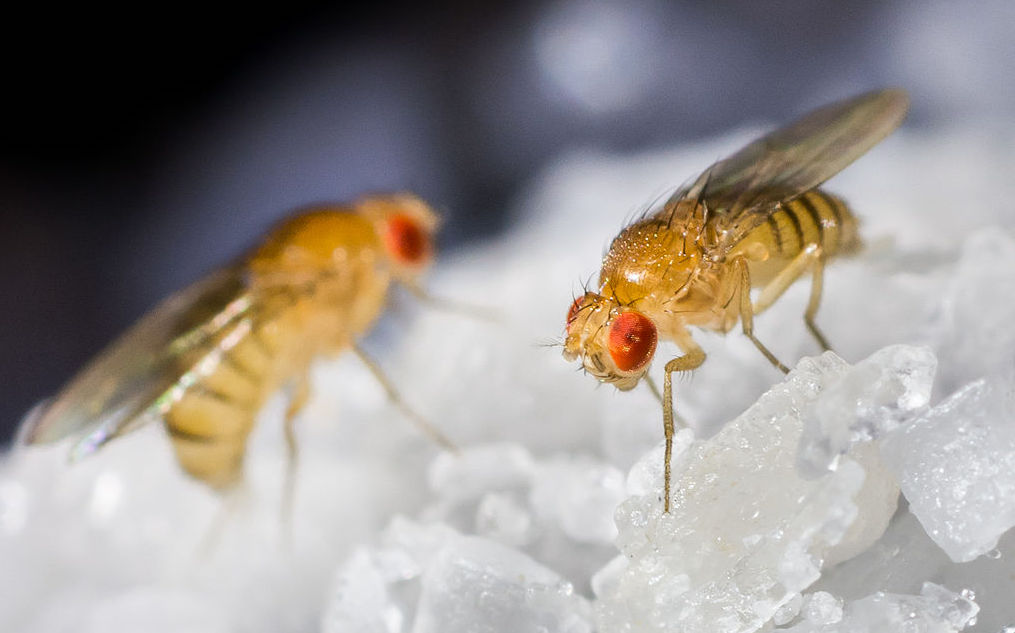News release
From:
Fruit flies can sense alkaline substances through a newly identified taste receptor, a paper published in Nature Metabolism demonstrates. Although this research was conducted in the fruit fly Drosophila melanogaster, a commonly used model organism for studying taste, it could provide a basis for future studies on alkaline taste in other animals.
The sense of taste influences the decision-making process of animals when it comes to choosing what to eat, as it allows them to sample their food before consuming it. Food sources contain many acids and bases, and pH measures a substance's acidity or alkalinity. Therefore, pH sensation enables the animal to select healthy food and reject potentially harmful options. While taste receptors for acids have been identified, those for bases have not.
Yali Zhang and colleagues found that when given a choice between neutral food (pH 7) and alkaline food (pH 12, for example), wild-type flies predominantly choose neutral food and avoid alkaline food. The authors discovered a gene called alkaliphile (alka), which encodes a chloride channel activated by alkaline pH. alka is expressed in the gustatory receptor neurons of flies and is responsible for detecting alkaline substances. The ability to taste alkaline substances could provide a beneficial adaptation for flies, given the adverse effects of highly alkaline pH on their development, survival, and lifespan. Sensing alkaline substances can help the flies avoid ingesting toxic substances and steer clear of pathogens that thrive in alkaline environments, the authors suggest.
Yali Zhang and co-authors indicate that more research is needed to explore whether this type of alkaline taste receptors also functions in other animals, including mammals.



 International
International



